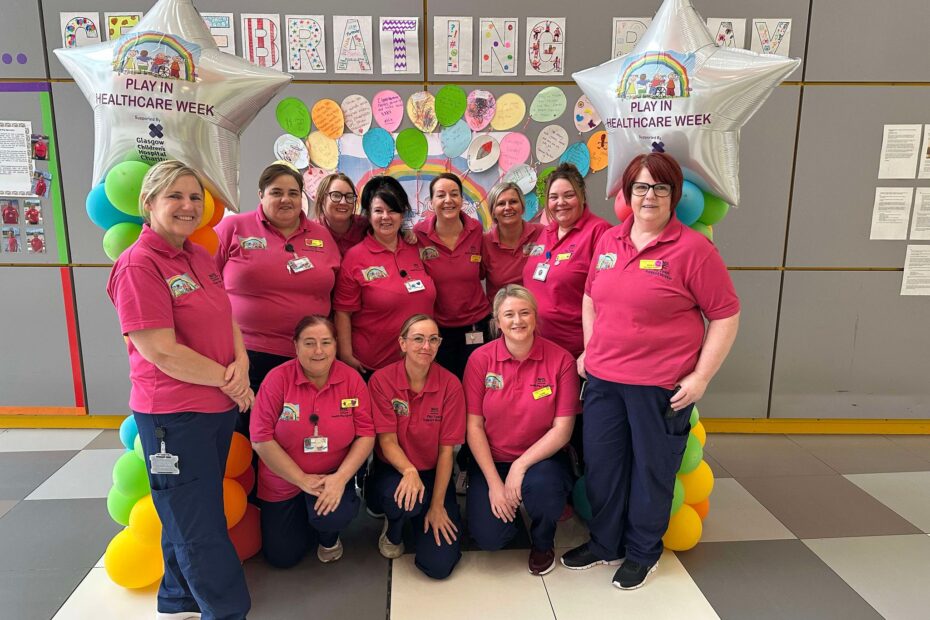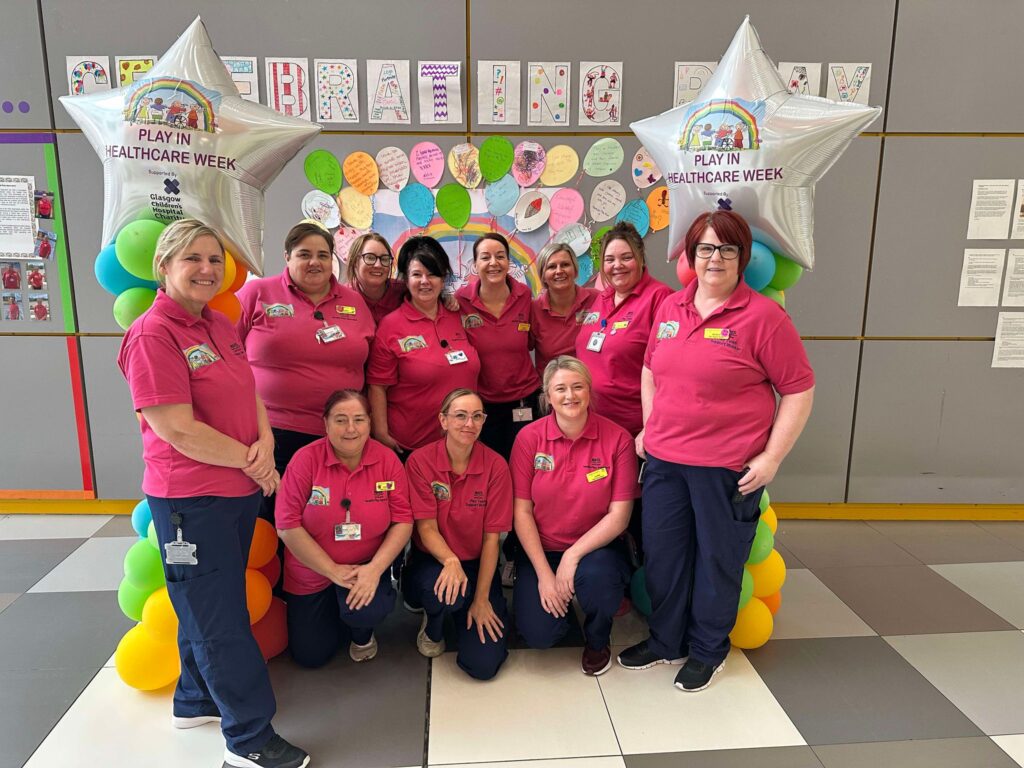
NHS Greater Glasgow and Clyde is celebrating Play in Healthcare Week by expressing thanks to the incredible Play Team at the Royal Hospital for Children, Glasgow (RHC). This dedicated team consistently goes above and beyond to support patients and their families, making a significant impact every day.
At RHC, the Play Team engages with patients on every ward, helping them relax, have fun, and communicate through play. This vital interaction is a crucial part of a child’s recovery, supporting their mental health and well-being during treatment.
Recently, the Play Team collaborated with Rays of Sunshine, a charity that brightens the lives of seriously ill children by granting wishes and providing ongoing support, and the Glasgow Children’s Hospital Charity, to install state-of-the-art projectors in the Paediatric Intensive Care Unit (PICU), creating new play opportunities for children in critical care. These innovative technologies include Nebula capsule projectors and the cutting-edge OmiVista interactive projector.
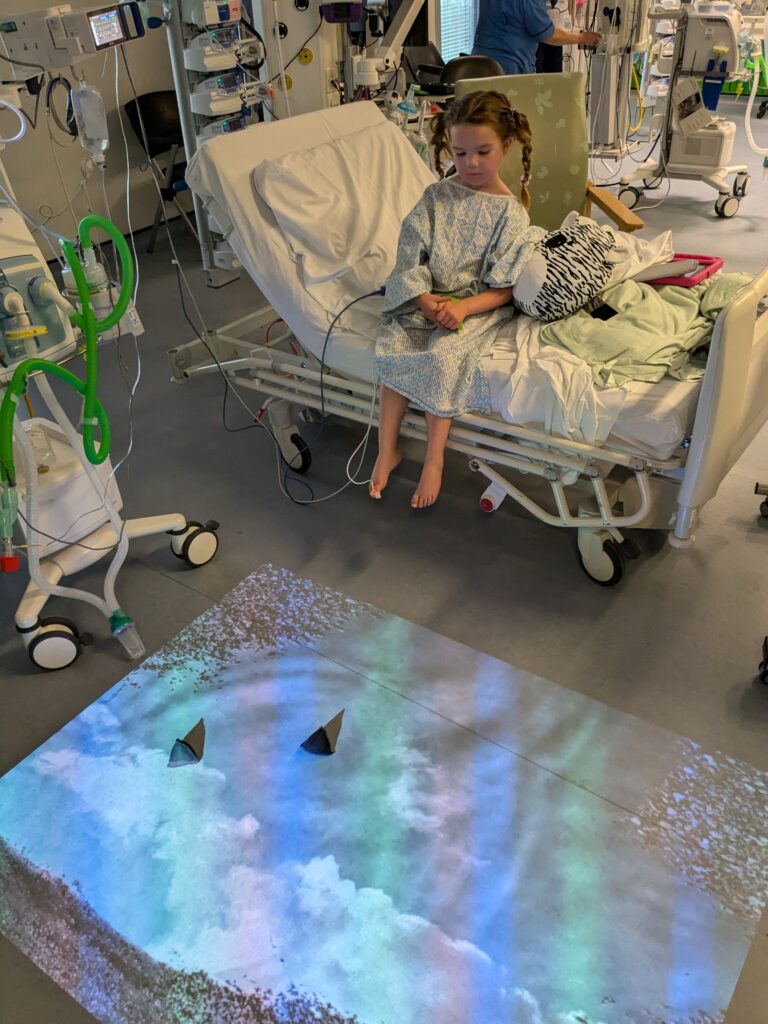
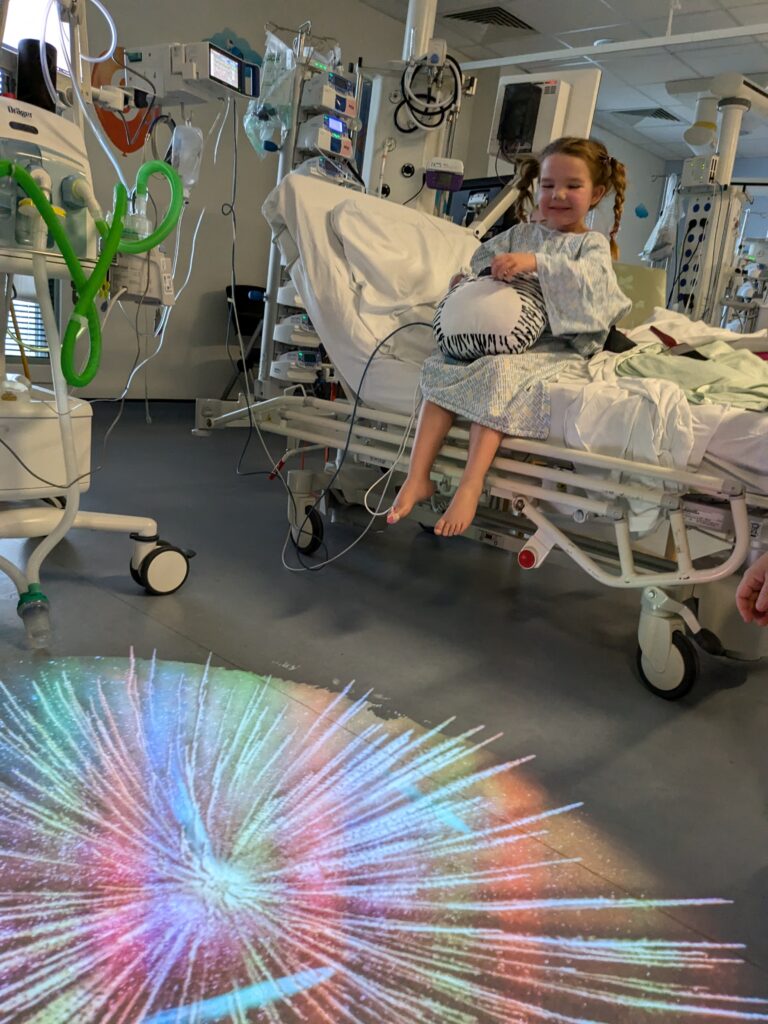
The mini capsule projectors are revolutionising how children in the PICU access entertainment and engage with their environment. These compact devices ensure that families can enjoy crystal-clear visuals, whether watching their favourite films or engaging in sensory experiences. What makes these projectors particularly special is their portability and versatility – they can project on any surface, be it the ceiling, walls, or the table over a child’s bed. This is crucial for children who may be bed-bound or unable to sit up, allowing them to watch familiar videos or messages from family and friends, no matter their position.
In addition to the Nebula capsule projectors, the PICU has also received an OmiVista interactive projector. This system responds to gestures and movements, creating dynamic and interactive images on any surface. The OmiVista comes with an activity bag filled with items like balls, sticks, and bean bags, enabling children to engage in games such as popping bubbles, stepping through water, creating fireworks, and catching raindrops. Not only does the OmiVista encourage physical movement and stretching, which is important for physiotherapy, but it also stimulates the brain and provides a much-needed distraction in what can be a challenging environment.
Emma McWilliams, a Play Team Member at the Royal Hospital for Children, who applied for the grant with Rays of Sunshine, said: “The OmiVista projector allows us to offer a full range of activities that are not only fun but also so beneficial for the physical and mental development of our young patients.”
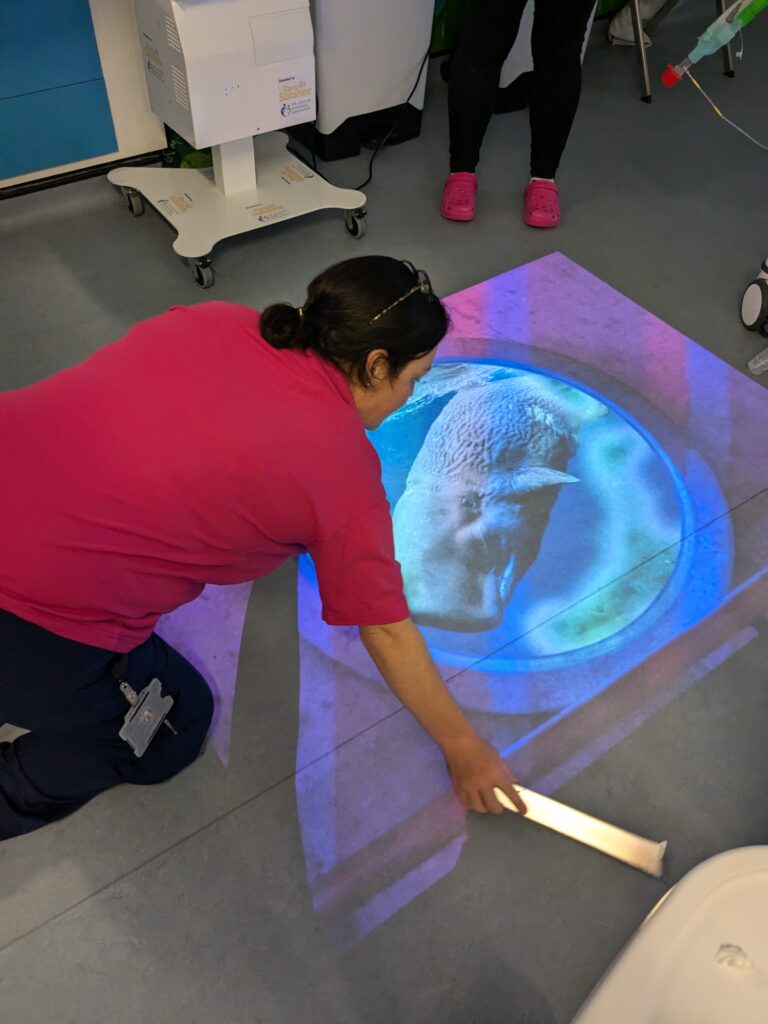
Play therapy helps to reduce anxiety and promotes mental and physical development, even in the most challenging circumstances. For some children, a stay in the PICU may last only a few hours, but the new environment can be frightening. For others, long stays can hinder physical and mental development. The combination of the Nebula capsule projectors and the OmiVista system offers these children a way to stay engaged, motivated, and connected to friends and family.
Mandy Meechan, NHS Greater Glasgow and Clyde Chief Nurse – Hospital Paediatrics and Neonates, added: “Every child deserves the opportunity to play, and the PICU projectors enable us to deliver that. They are an excellent addition to the unit. The Play Team at our hospital is invaluable, and we recognise that a lot of their work, like organising the projectors with Rays of Sunshine, is behind the scenes. This Play in Healthcare Week, and beyond, we want them to know that we are incredibly grateful for their commitment to patients and families – and we thank them for making us smile alongside the children too!”

